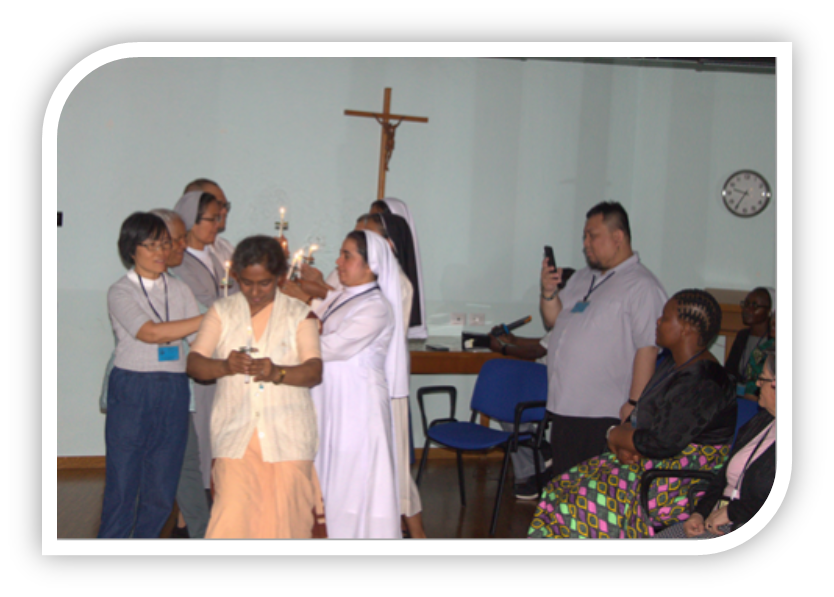Witnesses in a Synodal Framework
Maria Nirmalini, AC

Esteemed panelists and participants,
It is an honor to be here with all of you, as member of the universal Church, to share a living testimony from India — a journey marked by communion, participation, and mission. Inspired by the Synod on Synodality and rooted in the Gospel invitation to be “on the boat, together,” we in the Conference of Religious Women India (CRWI) are witnessing the fruits of synodality come alive through concrete initiatives and shared discernment.
The Synodal journey is not a theoretical construct; it is a lived reality that unfolds daily through the listening hearts and collaborative spirits of women religious across India. Pope Francis reminds us that synodality is not merely about meetings and structures but about being a Church that listens — to God, to one another, and to the cries of the poor and vulnerable.
Art 57 Charisms, Vocations and Ministries for Mission: I quote from the final document.
These gifts are not the exclusive property of those who receive and use them, nor are they intended solely for their personal benefit or for that of a group. They are intended for the flourishing of the life of the Christian community, including caring pastorally for vocations and the development of society.
The Conference of Religious India and Women is privileged to serve as such a space — a platform where different congregations, diverse in charism and apostolate, come together with humility and hope, forging paths of unity in diversity.
A profound expression of this synodality is the “Sisters Led Youth Initiatives” (SLYI) in the Archdiocese of Bangalore. This initiative, funded by the Hilton Foundation, is a collaborative mission involving six women’s congregations: The Apostolic Carmel, Salesian Sisters of Don Bosco (FMA), Missionary Sisters of Mary Help of Christians (MSMHC), Sisters of St. Joseph of Tarbes (SJT), Society of the Poor Handmaids of Jesus Christ (PHJC), and Sisters of St. Mary of the Immaculate (SMMI). While the project holder is the Apostolic Carmel, it is governed, shaped, and executed by all six congregations equally — reflecting the very essence of journeying together.
The vision of SLYI is clear: by 2025, to empower over 1200 marginalized youth in Bangalore, thereby uplifting families and strengthening communities. The approach is holistic — offering not only vocational training but also spiritual, emotional, and social empowerment. Already, nearly 500 youth have enrolled in various programs such as fashion design, electronic mechanics, accounts executive, communicative English, and more. This is not just skills training; it is formation for life. Alongside technical training, participants engage in character formation, yoga, meditation, career guidance, house visits, and job fairs — experiences that build resilience and nurture a sense of purpose.
Women religious play a pivotal role as both mentors and companions in this journey. The program’s emphasis on peer-to-peer mentoring, social entrepreneurship, and financial literacy — including initiatives like Skill Net — strengthens community bonds and creates sustainable opportunities. Especially noteworthy is the economic empowerment of women participants through access to government entitlements and banking systems. Over 200 trainees have received new identity documents and 248 have opened bank accounts, enabling access to public schemes.
But synodality, as the final document of the Synod beautifully states, is not just about horizontal collaboration — it is also about vertical communion, a shared orientation toward the Holy Spirit. At our National Assembly of the Conference of religious India (women and men) held in May 2024, we practiced “Conversation in the Spirit,” a method that calls for deep listening, contemplative silence, and shared discernment. Through this sacred process, we do not merely plan projects; we listen together to one another but more importantly we listened to the voices of the young and the suffering humanity. It was indeed an eye opener and a call for introspection of our life and ministry. This inward journey helped us shape responses to the needs of our time.
Art 55 (final document on Synod on Synodality) speaks of the evils that afflict our world -the abuse crisis. Out of such discernment was born our newest initiative — the “Safeguarding of Women Religious India” (SWRI) — launched in 2025 in collaboration with the Institute of Anthropology (IADC), Gregorian University, Rome. This initiative, built on our collective commitment to dignity and justice, addresses the often-overlooked vulnerabilities of women religious themselves. We have come to understand, through synodal reflection, that safeguarding is not only about protecting children and vulnerable adults but must also include those within our own Church structures who face neglect, silencing, or abuse.
SWRI offers a robust, accessible, and contextual safeguarding formation through online diploma and general courses. These sessions, held weekly, are facilitated by experts and include both theological foundations and practical tools for building safe environments. With support from CRWI and scholarships available, participation has expanded across congregations, forming a vibrant network of sisters and collaborators committed to a culture of safeguarding.
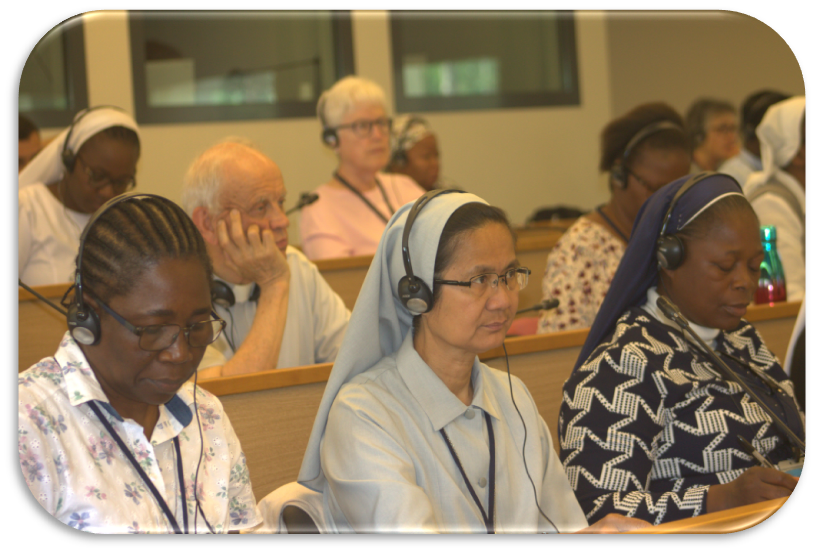
Moreover, our safeguarding commitment extends into our policies and practices. Through workshops, webinars, and consultations, we are assisting congregations in developing institutional safeguarding policies, grievance redressal mechanisms, and accompaniment frameworks — ensuring that every sister feels seen, heard, and protected.
These experiences echo the call of the Synod to foster a culture of transparency, accountability, and shared responsibility. We believe that the journey toward a truly synodal Church cannot bypass the voices and experiences of women religious. In India, where societal structures often mirror clerical or patriarchal patterns, our efforts to build a more inclusive, participatory, and safe Church are indeed counter-cultural — yet deeply evangelical.
Synodality and Participatory Bodies: There is an effort to include lay women and men and consecrated women at various forums and especially in the various commissions of the bishop’s conference.
Every year the Catholic Bishop’s Conference and the National Conference of religious India have a joint meeting. It is a wonderful opportunity to share and to listen to one another. It is a platform to talk, to express our story.
As we stand here today, we are aware that our boat is still navigating turbulent waters. But we are also deeply aware that we are not alone. The presence of Christ among us, especially in the faces of the poor, the young, the voiceless, sustains our journey. We are, truly, on the boat together.
In conclusion, the synodal journey of Conference of religious women India (CRWI) is a living expression of a Church that walks in communion, discerns in participation, and acts in mission. It is a Church where charisms converge, voices are heard, and the Spirit is trusted to guide us forward. Through initiatives like SLYI and SWRI, we hope not only to serve but to witness — to a Church that is more human, more just, and more holy.
Thank you, and may the Holy Spirit continue to lead us onward.
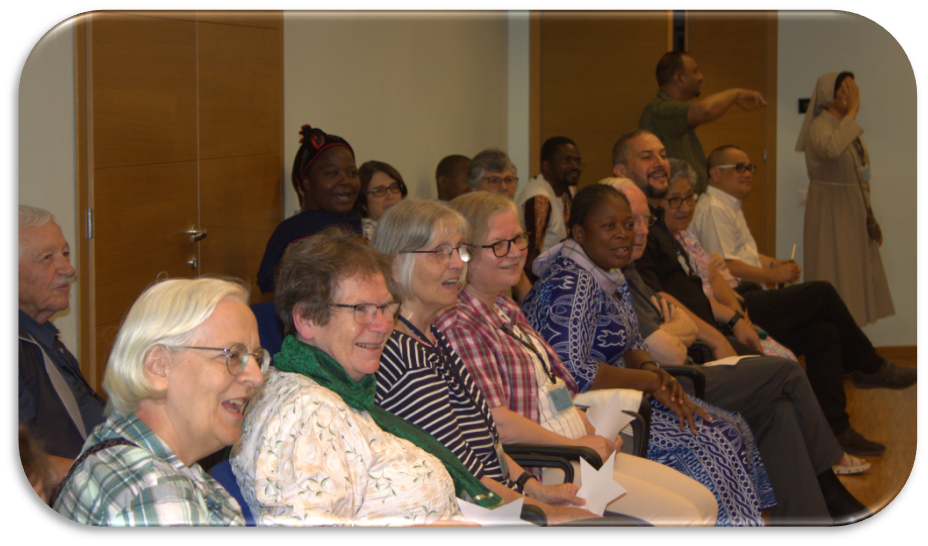
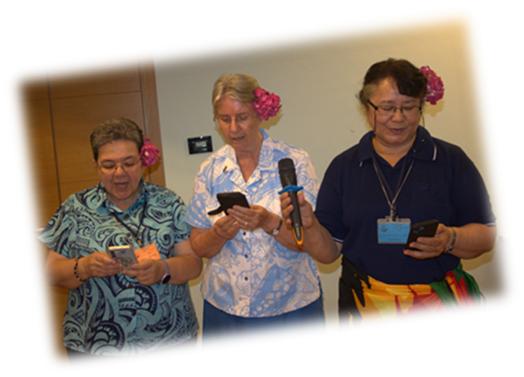
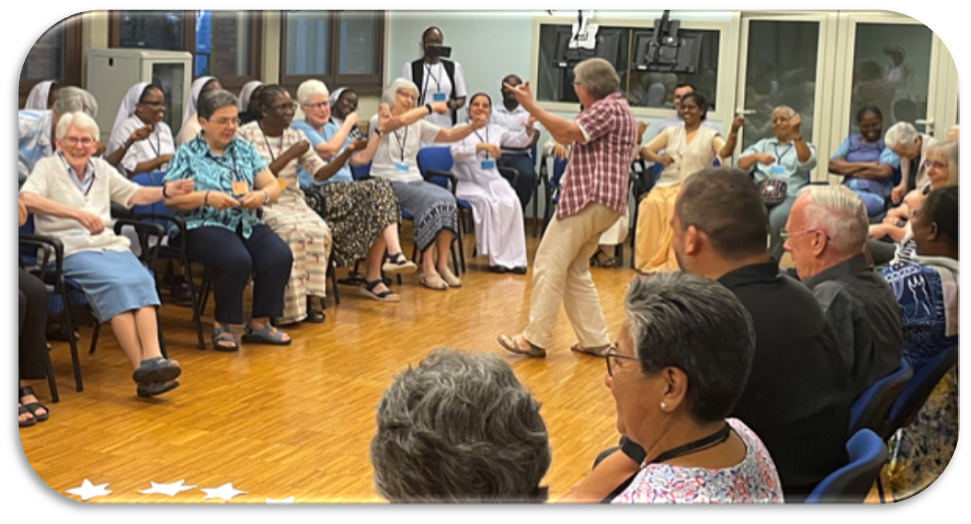
SEDOS Residential Seminar Nemi – Cultural Evening
